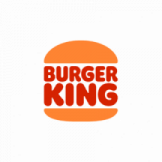How Meesho became Unicorn Company - Its Valued 2.1Billion USD
December 7, 2025
December 13, 2025,3:28:35 AM

Burger King was started in 1954 by James W. McLamore and David Edgerton in Miami. Other sources, however, trace Burger King back to Insta-Burger King, a venture founded in Jacksonville, Florida, by Keith Kramer and Matthew Burns in 1953. McLamore and Edgerton sold their first franchises in 1959, and Burger King soon became a national chain. The company expanded ouside the United States in 1963 with a store in Puerto Rico.
![]()
Burger King Corporation, restaurant company specializing in flame-broiled fast-food hamburgers. It is the second largest hamburger chain the the United States, after McDonald’s. In the early 21st century, Burger King claimed to have about 14,000 stores in nearly 100 countries. Headquarters are in Miami, Florida.
In November 2014, India became the 100th country in which Burger King set up shop, and at the helm is Rajeev Varman, its CEO. With close to two decades at the company, Varman has helped expand the restaurant's global footprint to markets like Canada and the U.K. Now, he is back in India to grow the brand.
![]()
Not too many meals represent quintessential American ‘fast food’ better than a burger. And it seems Indians, too, can’t get enough of it. Food delivery platform Zomato revealed that the burger was among the most searched foods on its app. And this can only be good news for players like Burger King, as it is for the ₹4.2 lakh crore Indian food industry with a predicted 9% CAGR growth.
Under Varman, the company has tailored its menu and messaging to suit Indian tastes. For instance, it is building a wider vegetarian offering, enhancing its flame-grilling expertise, and focussing on value leadership rather than price as a differentiator. “Value does not necessarily mean buying cheap products. We need to be value in pricing and premium in quality,” says Varman.
He’s setting the stage to meet an ambitious target of opening 700 outlets by December 31, 2026. This is a part of Burger King’s exclusive National Master Franchise Rights agreement, which according to brokerage firm Motilal Oswal, provides it with the ability to use its globally recognised brand name to expand in India. A part of its expansion will be financed by proceeds from its public offer last year, which was oversubscribed by 157 times. The offer helped Burger King India raise ₹810 crore.
![]()
In a sense, Burger King is making up for lost time. By Varman’s own admission, the company has missed the first mover advantage enjoyed by global brands like Domino’s, McDonald’s, and KFC who have been in India for over two decades. “We came in late and walked into an environment where there are two-three very established brands,” points out Varman. “We always have to size up and deal with the shortcomings of coming late as well.” What aids Varman, however, is that the other brands have already put in place supply chains, distribution centres, and production units. “And when you come in as a brand almost two decades later, you are able to take advantage of all that setup,” he says.
Even as the brand was in its growth phase, its progress was hit by the pandemic. Burger King India’s revenue from operations declined a little over 28% year-on-year to ₹162 crore in Q3 of FY21. Of this period, Varman, however, likes to say: “We had a pause, not a stop.”
Burger King used this “pause” to create a fresh menu with a new Whopper range, more sauces for the Indian taste, and four premium burgers—cheese, paneer, tandoori chicken, and fiery chicken—in addition to its existing 18 vegetarian and non-vegetarian burgers. “When we opened up, we actually opened with a very new kind of product line,” says Varman. “We had those plans for this fiscal year but during the lockdown we were able to do it much faster. And we also took this opportunity to put a lot of emphasis on our digital business. It was important to have our own app, riders, and delivery system. In the QSR space in India, we are the first ones in the burger business to come out with a loyalty programme.”
![]()
Burger King India on February 10, 2022 announced the launch of its qualified institutional placement (QIP) of equity shares of Rs 10 face value, it said in a regulatory filing. The company has set the floor price at Rs 136.05 per share.The indicative offer size is for the base deal size of Rs 12,750 million with an option to upsize to Rs 14,250 million. The indicative offer price has been set at Rs 129.25 per equity, with a maximum of 5 percent discount.
© 2024 Iconsofindianbusiness.com. All Right Reserved.